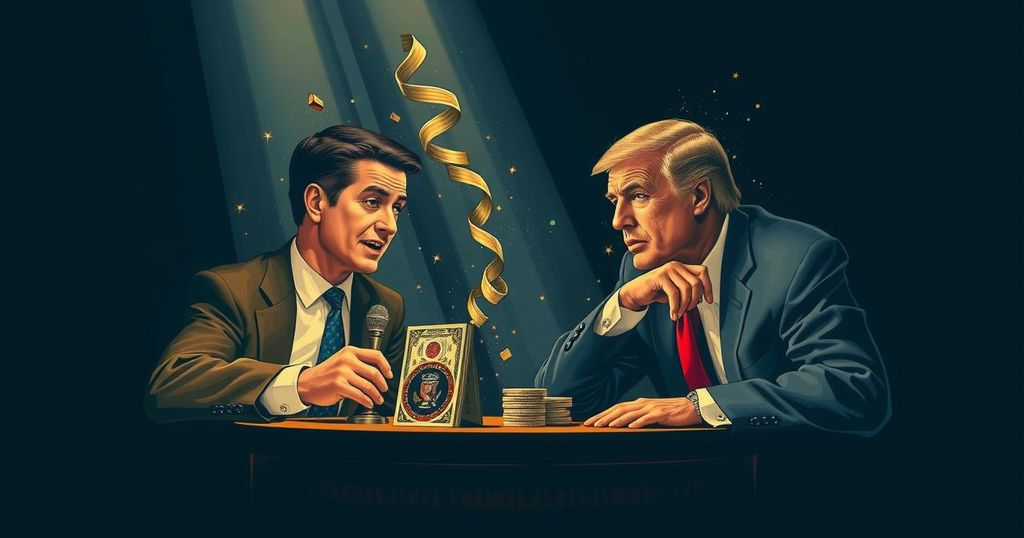The mobilization of North Korean troops in Russia amidst the Ukraine conflict highlights a precarious alliance of authoritarian states, including Russia, China, Iran, and North Korea. This partnership, while underscoring shared anti-American sentiments, is complicated by differing national interests and the economic dependencies that exist within this coalition. Xi Jinping’s cautious approach reflects a desire for stability that protects China’s economy while engaging with these nations. However, the risks of escalation in global conflicts could have adverse effects on China’s economic stability, challenging Xi’s strategic gambit.
The recent intelligence regarding North Korean troops congregating in Russia has heightened the apprehension among Western nations concerning a potential alliance of authoritarian regimes aiming to circuitously challenge democratic governance. Such an alliance, albeit fragile, hinges significantly on China’s disposition toward geopolitical disorder. The ongoing conflict in Ukraine epitomizes an alliance among Russia, China, Iran, and North Korea, all of which harbor significant grievances against the United States and the prevailing international norms. Following its invasion of Ukraine in 2022, Russia has obtained weaponry, such as drones and missiles, from Iran. Additionally, the United States has imposed sanctions on Chinese entities linked to Russian military endeavors. With the recent reports indicating North Korean troops preparing to assist Russian forces, concerns are mounting, particularly highlighted by U.S. Defense Secretary Lloyd Austin’s statement regarding the serious ramifications should these troops actively participate in hostilities. However, this collaboration among authoritarian states is not without its complications. Russia, North Korea, and Iran may appear unified in their anti-American sentiment, yet their strategies diverge. While Putin adopts an aggressive military stance, North Korea and Iran—who exist in economic isolation—would gain materially through their support of Russia. In contrast, China’s approach is considerably more nuanced; its ambition to reshape the global order is constrained by its economic ties to the West, making it cautious to avoid severe sanctions arising from arms transactions with Russia. Consequently, Xi Jinping’s leadership reflects a penchant for stability, a necessary condition for safeguarding the Chinese economy while enhancing its global influence. Despite this, his deepening affiliations with Russia and Iran, particularly during escalating global tensions, remain questionable. For instance, the day prior to the announcement of North Korean troops’ deployment, Xi met with Putin, underscoring the ongoing collaboration even as the risks of conflict intensify. There exists a strong argument that China is inadvertently fostering and financing this geopolitical instability. As the United States enforces sanctions against the trio of nations, their economies increasingly depend on China. In fact, trade between China and Russia reached an unprecedented $240 billion last year, with Russia pivoting towards the yuan and China becoming pivotal for Iranian oil exports and North Korean trade. An absence of China’s backing would severely challenge these nations’ military and nuclear ambitions but Xi appears comfortable with the current alignment. China’s apparent acquiescence to other autocracies’ tumultuous actions could be perceived as beneficial, diminishing Western resources and influence. Nonetheless, the volatility induced by this situation carries inherent risks for China itself. Escalation in conflicts, such as in the Middle East, could disrupt energy markets crucial for China’s economy. Moreover, the presence of North Korean forces in Russia raises the specter of escalating tensions in Ukraine, compelling nations like South Korea to reevaluate their defense strategies. China finds itself in a paradox where it seeks to destabilize the existing international framework while concurrently wishing to maintain its operational stability. Xi’s strategic vision appears to involve a transition toward self-sufficiency and strengthening partnerships with countries in the Global South to reduce reliance on Western economies. Such a strategy is envisioned for the future, allowing China greater latitude to support like-minded autocrats without as significant ramifications. In essence, while Xi Jinping’s current approach unfolds under the assumption that China may navigate through global turmoil unscathed, it is imperative to consider the potential repercussions. By inadvertently fostering international strife, China may jeopardize its economic interests and complicate its diplomatic positioning. Should this gamble prove unwise, the repercussions for China and Xi’s leadership could be considerable.
The assertion that North Korean troops are participating in the conflict in Ukraine underlines a growing apprehension regarding a coalition of authoritarian regimes. This dynamic involves nations that are primarily opposed to U.S. hegemony and the international order that has been shaped by it. The interplay of relationships among Russia, China, North Korea, and Iran represents both cooperation and conflict, particularly as each state has divergent strategies and levels of economic dependence. Understanding the motivations and the complexities involved in these relationships is critical in analyzing the diplomatic maneuvers of global powers, notably China’s careful balancing act between asserting influence and maintaining stability in its economic interests.
The current geopolitical landscape dominated by the involvement of North Korean forces in Russia highlights not only the complexities of international alliances among authoritarian regimes but also the precarious position of China within this framework. Xi Jinping’s strategy of fostering relationships with Russia and Iran poses inherent risks, particularly as these relationships could result in greater destabilization that jeopardizes China’s economic interests. The delicate balance that Xi seeks to maintain between challenging the Western order while preserving domestic economic stability is indicative of the broader challenges faced in contemporary global politics. Should Xi’s current strategy fail to yield favorable results, the implications could be profound for his leadership and China’s role on the world stage.
Original Source: www.theatlantic.com






